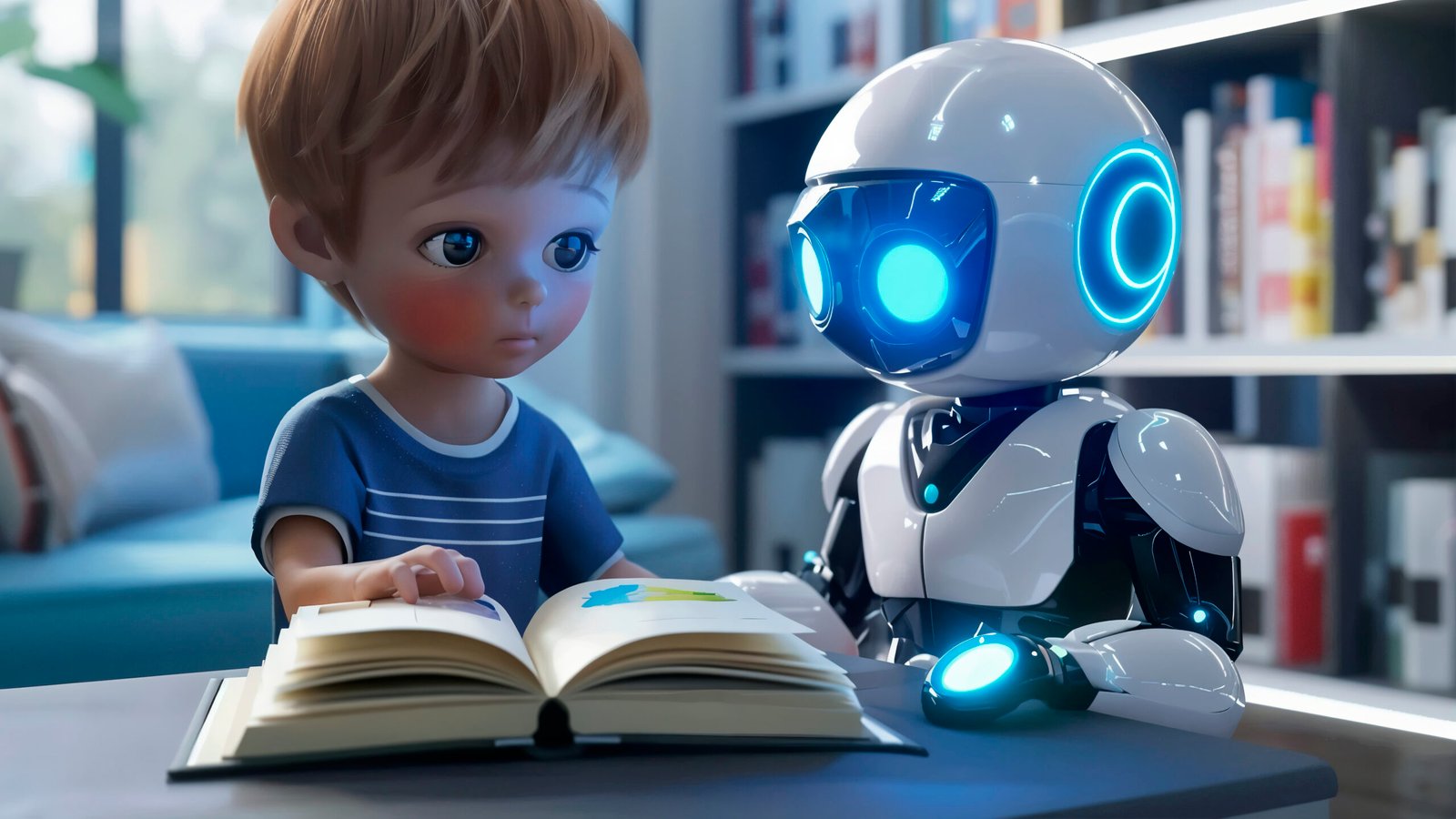Introduction: A New Era of Digital Learning
Online education is no longer an optional supplement to traditional classrooms, it is becoming the primary learning environment for millions of people worldwide. The shift into virtual spaces has challenged educators and technologists to rethink the way we design, deliver, and experience learning. Central to this transformation are AI tutors and AI-powered chatbots: intelligent digital entities that offer personalized and always-available learning support.
At the intersection of innovation and pedagogy, platforms like AiXQP by iTCart are reimagining learning as an adaptive, data-driven partnership between students and AI systems. Instead of rigid, one-size-fits-all instruction, learners now engage in dynamic, tailored experiences that evolve with their needs. This seamless interaction between humans and AI brings a sense of continuity, immediacy, and personalization that was once impossible in formal education.
Understanding AI Tutors and Chatbots in the Learning Context
Before exploring how these tools transform learning, it’s important to define their roles.
- AI Tutors simulate the role of a personal instructor; tracking progress, diagnosing weaknesses, adapting content, and encouraging learners at every step. They can explain concepts, provide practice, evaluate mastery, and adjust lessons in real time.
- Educational Chatbots function as accessible, 24/7 assistants, handling queries, guiding navigation through digital platforms, breaking down complex problems, and even facilitating group discussions.
The power of these systems lies in how they process data. Every activity, be it answering a question, spending more time on a lesson, or showing hesitation during a quiz, gives the AI insights into the learner’s behavior and knowledge gaps. This granular understanding allows for constant refinement of the learning journey.
The Human-Like Experience in Virtual Spaces
One of the biggest criticisms of online learning is its supposed detachment from human connection. AI tutors, when implemented well, counter this by creating context-aware interactions. Through natural language processing and sentiment analysis, they can detect when a student is frustrated, disengaged, or curious, and respond in a way that feels considerate, not mechanical.
For example, AiXQP’s intelligent system can notice if a student repeatedly struggles with a core programming concept. Instead of merely flagging it as incorrect, it might present the problem in a different format such as a real-world analogy, a visual diagram, or an interactive mini-project, mirroring how a skilled human tutor would try different teaching angles.
Personalization at Scale
Traditional classrooms strain to meet diverse learning needs. In contrast, AI tutors thrive on differentiation because they process countless variables simultaneously.
Key Personalization Capabilities:
- Customized pacing: The AI adjusts lesson speed according to mastery, ensuring no one is left behind or held back.
- Adaptive difficulty: Questions, assignments, and examples are dynamically leveled to the learner’s ability.
- Learning style matching: Visual learners may see more diagrams and animations, while auditory learners get explanations in voice format.
AiXQP amplifies this by housing a diagnostic engine that continuously maps a learner’s profile. This results in a course pathway that feels handcrafted yet is generated instantaneously.
Learning Beyond the Clock
The boundaries of education used to be dictated by schedules like office hours, class periods, consultation slots. AI tutors and chatbots dismantle these constraints.
At midnight, a medical student revising anatomy can still get step-by-step feedback from their AI tutor. A working professional logging in after a late shift can ask a chatbot to clarify an advanced concept without waiting hours or days for an instructor’s reply. This creates what can be called a continuously available learning environment, one of AiXQP’s defining strengths.
Making Learning Interactive and Living
Static content like PDFs, pre-recorded lectures, and fixed quizzes can feel lifeless. AI changes this by turning lessons into interactive experiences where the learner participates rather than passively consumes.
With AiXQP, a finance student may not just read about credit risk models; they could simulate loan approval scenarios, analyze real-time financial datasets, and get AI feedback on their reasoning. The AI monitors decision-making patterns and offers corrective guidance, transforming abstract knowledge into applied skills.
Bridging Academia and Industry
One of the most compelling features of AiXQP is its deep integration with real-world professional expertise.
Instructors involved in AiXQP are active practitioners in industries like healthcare, fintech, DevOps, and digital marketing. This ensures that conceptual learning is consistently paired with practical, up-to-date industry applications.
For learners, this means:
- Exposure to authentic challenges faced in their future workplaces
- Insights into ethical and compliance considerations
- Opportunity to work on industry-inspired capstone projects
AI tutors facilitate this bridge by contextualizing lessons within real-world scenarios rather than leaving concepts in abstraction.
AI Tutors as Guardians of Consistency
One underrated benefit of AI tutors is delivery consistency. Two human teachers may explain a topic differently, and not all explanations are equally clear. An AI tutor ensures that foundational instructions are precise, complete, and uniform, while still offering multiple strategies for comprehension.
In large-scale education delivery such as MOOCs or corporate upskilling programs with thousands of employees, this consistent delivery becomes crucial. AiXQP uses structured learning blueprints backed by adaptive variation, striking a balance between reliability and personalization.
The Educator’s Perspective: Redefining Roles
Contrary to the misconception that AI replaces teachers, these tools complement educators by unburdening them from repetitive administrative and support tasks.
AI assistants automatically:
- Grade assignments and quizzes
- Track attendance and learning milestones
- Issue reminders for deadlines
- Answer FAQs
Teachers can then focus on advanced mentorship, conceptual clarity, and critical thinking coaching, aspects where human intuition remains unmatched.
Proactive Support Through Predictive Insights
One of the most futuristic capabilities of AI tutors is their ability to anticipate learning challenges before they occur.
By analyzing engagement trends, quiz performance, and interaction patterns, AiXQP can forecast possible drop points for a learner. It can then intervene, suggesting micro-lessons, offering additional examples, or even notifying educators about at-risk learners. This proactive remediation prevents frustration and dropout.
Ethical, Inclusive, and Accessible AI Education
An important aspect of iTCart’s AiXQP philosophy is inclusivity. AI tutors and chatbots have the capacity to:
- Translate lessons into multiple languages
- Offer voice-to-text and text-to-voice for learners with disabilities
- Adjust cognitive load for neurodiverse learners
In an online education world that risks becoming data-rich but empathy-poor, such design ensures that technology serves all learners fairly.
Sector-Specific Learning Success Stories
a. Banking and Financial Services
AiXQP’s AI-powered modules in debt recovery training illustrate how education can be sector-targeted. Learners don’t just hear about recovery frameworks, they practice simulated recovery negotiations, assess risk profiles, and analyze customer communication strategies.
b. Healthcare Training
AI tutors can guide nursing students with patient case simulations, detecting incorrect procedure steps before they cause errors in real life.
c. DevOps and IT
In highly technical domains, AI tutors act as coding companions; debugging code, suggesting optimization strategies, and introducing learners to emerging automation scripts.
From a Learning Platform to a Career Catalyst
The journey doesn’t end when the last module is completed. AiXQP positions learners for the next phase—career readiness. This includes:
- Building digital portfolios from completed projects
- Offering mock interviews with AI evaluators
- Providing personalized career recommendations based on skill mastery and interests
The Road Ahead: Future Possibilities
Looking ahead, AI tutors and chatbots will integrate even deeper with other technologies:
- AR/VR classrooms where AI guides you through immersive environments
- Emotion-aware learning adjusting approach based on facial expressions and tone
- Global learner ecosystems where AI connects students with peers worldwide for collaborative problem-solving
Conclusion: The AI-Human Synergy in Learning
The role of AI tutors and chatbots goes far beyond automating tasks or answering questions. They are building interactive, career-relevant, and responsive educational ecosystems. With platforms like AiXQP by iTCart, online learning is maturing into an environment where students don’t simply “consume” content, they live their learning journey.
This is not about replacing educators or overloading learners with tech gimmicks. It’s about creating a continuous partnership between human curiosity and machine intelligence, ensuring education remains meaningful, accessible, and future-ready.



